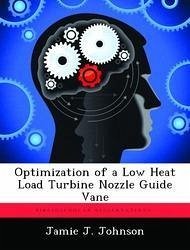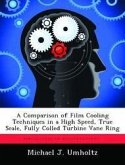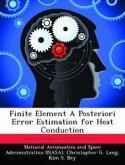Often turbomachinery airfoils are designed with aerodynamic performance foremost in mind rather than component durability. However, future aircraft systems require ever increasing levels of gas-turbine inlet temperature causing the durability and reliability of turbine components to be an ever more important design concern. As a result, the need to provide improved heat transfer prediction and optimization methods presents itself. Here, an effort to design an airfoil with minimized heat load is reported. First, a Reynolds-Averaged Navier-Stokes (RANS) flow solver was validated over different flow regimes as well as varying boundary conditions against extensive data available in literature published by the Von Karman Institute (VKI).
Hinweis: Dieser Artikel kann nur an eine deutsche Lieferadresse ausgeliefert werden.
Hinweis: Dieser Artikel kann nur an eine deutsche Lieferadresse ausgeliefert werden.








